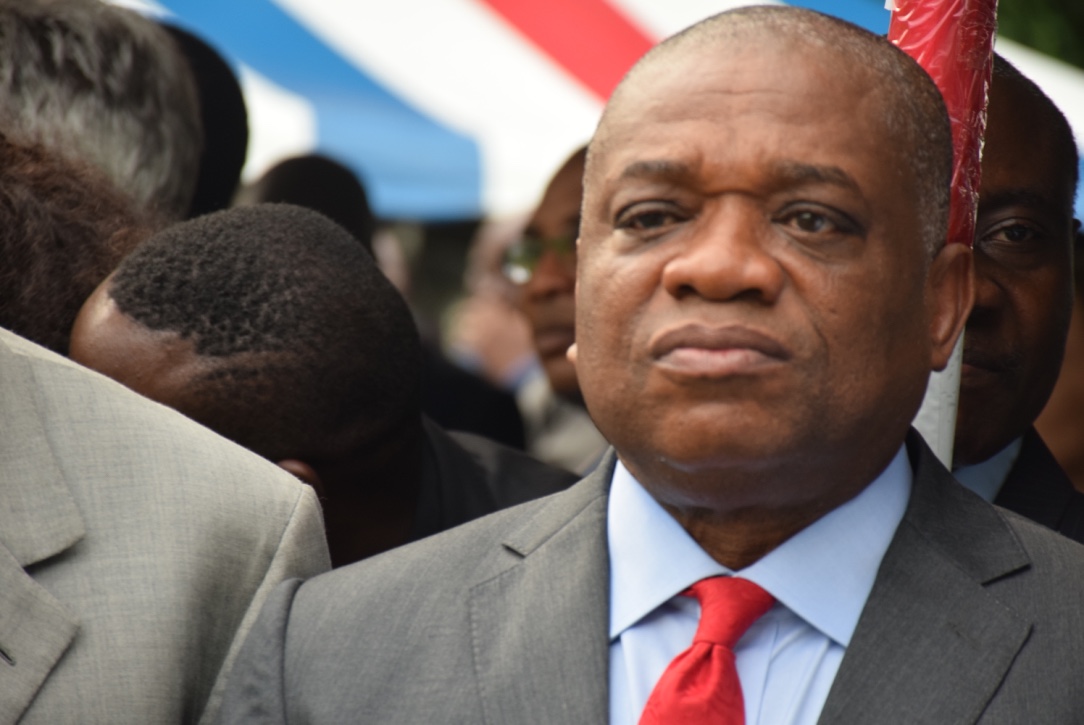As a policy, the federal government makes private companies to cough out education tax for the Tertiary Education Trust Fund (TETFund), which was set up to address the infrastructural challenge in public tertiary institutions across the country. In accordance with the provisions of the TETFund Act 2011, registered companies in Nigeria are imposed a 2% annual tertiary education tax. From the fund, the agency allocates billions of naira to eligible institutions across the country.
President Muhammadu Buhari had approved N208 billion as part of 2019 intervention fund. Earlier in the year, Abdullahi Baffa, former executive secretary of TETFund, said as of November 2018, the education tax collection stood at over N200 billion, an increase of 25.47 per cent over the previous year’s collection of N154.9billion.
Despite huge amounts allocated to institutions, there is still infrastructural deficit in schools benefiting from the fund. Findings showed that some of the projects managed by the scheme have been abandoned, some missing, while others diverted.
MULTI-MILLION NAIRA STUDENTS HOSTEL ROTS AWAY IN FUPRE
Advertisement
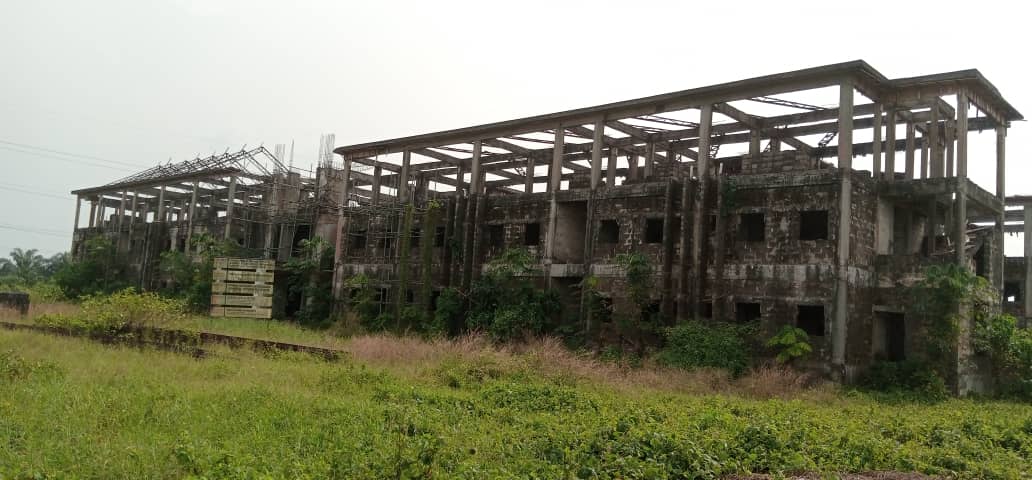
Established in 2007, Federal University of Petroleum Resources, Effurun (FUPRE), Delta state, is a specialised institution. Dubbed first of its kind in Africa, it takes just 20 minutes to walk round the whole school. During a visit, it was observed that while some projects had been completed, others are rotting away.
According to a budget performance report signed by Akii Ibhadode, FUPRE’s vice-chancellor, in March, and submitted to a senate committee, TETFund and NEEDs assessment projects in FUPRE are to the tune of N4.1 billion, out of which N2.9 billion had been spent. The institution listed the ongoing capital projects and the details of each contract.
The construction, furnishing of workshops and laboratories for the department of petroleum engineering was captured under the 2012 TETFund initiative. However, the project was said to have begun in March 2014 and awarded to Nath-Jordan Nigeria Limited at the cost of N224 million. The building has been completed and the facility is also in use.
Advertisement
Same thing goes for contract for the twin 250-capacity lecture halls under the 2016 zonal intervention fund. The project was awarded to Sinti Nigeria Limited at the cost of N219 million, while the consultancy went to Frossyl Nigeria Limited for N23 million. A 300-level student of the university said he wrote an examination inside the hall a few weeks back.
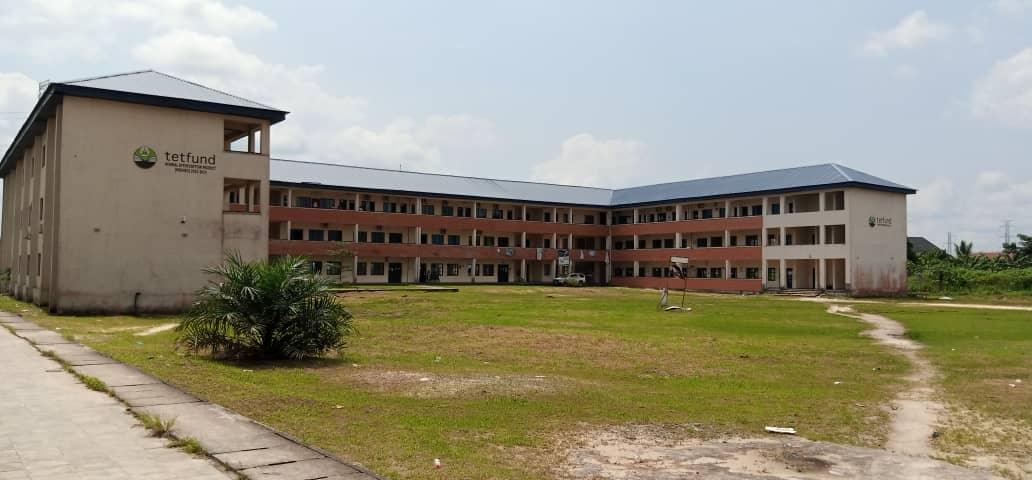
However, some projects like the construction of library offices and mini laboratories, the contract for the construction of staff and senior staff offices are ongoing.
But the contract for the construction of entrepreneurship centre building, awarded in 2013 to Amborg Global Resources at the cost of N97 million, was diverted. Asked why the building was allocated to the department of earth science laboratories, Efe Ekuerhare, FUPRE’s acting director of works, said since the main faculty of science building was under construction, they had to temporarily allocate the entrepreneurship centre to the earth sciences department.
Behind the two small student hostels on campus lies a skeletal massive building under construction as part of the presidential needs assessment project. It’s a student residential building complex awarded in 2013 to Someni Nigeria Limited at the cost N990 million. Bushes have taken over a significant part of the building while construction had been suspended since 2017 “owing to poor funding”.
Advertisement
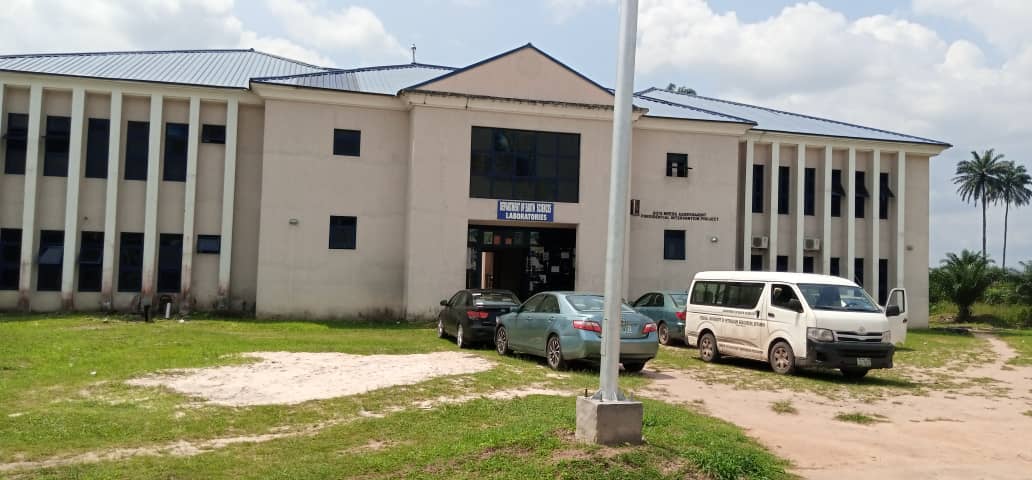
According to the university, only the first tranche of the money was released, leaving the building to rot away.
Solomon Mesogboriwon, a graduating student of the university, lamented over the high cost of getting accommodation outside campus.
“I stay in a small self-convenient room which cost N180,000 per annum and the rent around here keeps increasing. We just have no choice. It is not easy getting a good accommodation in communities around the university,” he said.
The university has a population of about 5,000 students, according to the public relations unit.
Advertisement
‘FUNDING ONLY COMES IN TRICKLES’
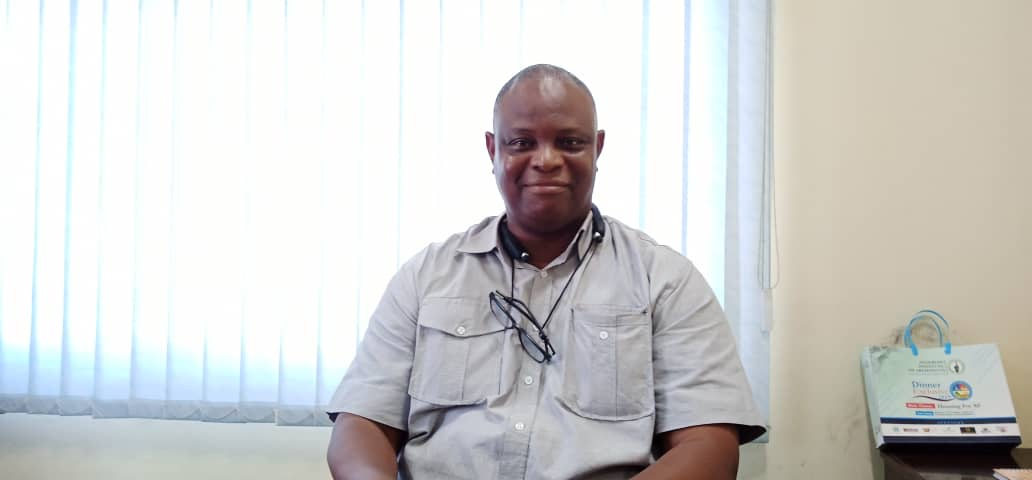
In an interview, Ekuerhare acting director of works, said the level of infrastructural development in the university is just 10 percent. He said the institution doesn’t have enough structures due to poor funding.
Advertisement
“On one hand, it is safe to say that TETFund has been quite benevolent to the University because since 2012/2013, the projects we have done are sponsored by the agency. But considering the age of the university and the total lack of infrastructure, it has not really met our needs, ” Ekuerhare said.
“To build is actually a major challenge for us when we are given money in trickles. We had to be imaginative in the way our architecture evolves. If you notice, there are no architectural acrobatics. Our designs are just simple. Even at that, we have to design in modules or segments so that each can be built independent of others just because of the funding that comes in trickles.
Advertisement
“About two years ago, the hostels were overcrowded. One of the host communities was hostile, which led to the death of two of our students. That period, we had to see how we could accommodate them with the little we had. That experiment failed and we reverted to the students getting accommodation outside.
“We are yet to benefit from TETFund’s high impact projects. By 4pm, the university will empty out because there is no staff housing. We have a master plan and we know what it takes to develop it, but nothing is coming to match that dream.”
Advertisement
NO TRACE OF CENTRE TETFUND RELEASED N229M FOR AT UNIBEN
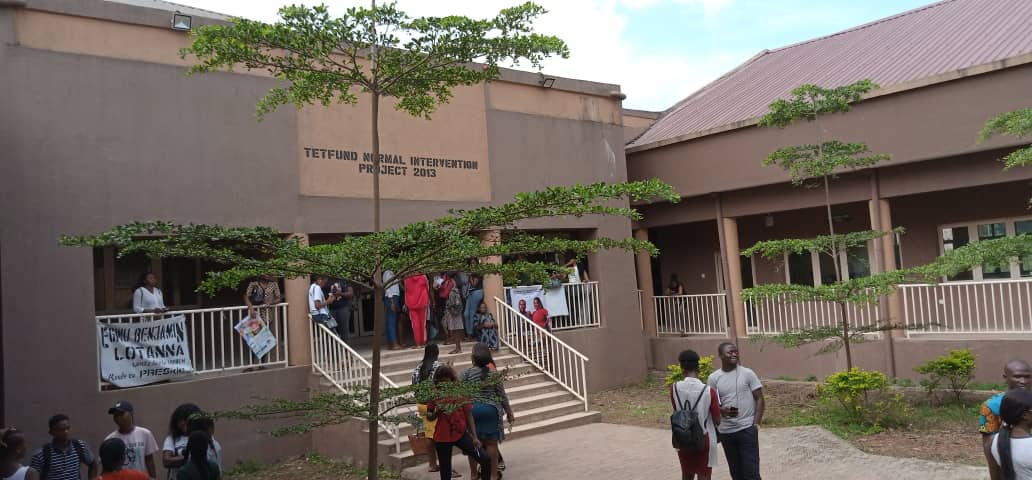
The University of Benin (UNIBEN) is another institution benefiting from TETFund. At the faculty of education of Ugbowo campus is a new building housing a lecture theatre and four classrooms. The lecture theatre was occupied by graduating students of English education who were taking classes on grammar when the reporter visited last month. The facility is part of the TETFund 2013 normal intervention project awarded at the cost of N137 million.
Muhammadu Sanusi, emir of Kano, inaugurated the project in November 2017.
Other similar projects under the 2013 normal intervention project in the university include the construction of science laboratory which gulped N162 million. About N18 million was expended on the consulting services. While the building is currently in use by the department of science laboratory technology, other projects under the normal intervention initiative are still ongoing.
Although slated to be completed in 2018, the construction and furnishing of the materials and metallurgy department and its laboratory building is ongoing. On a visit to the site, the contractors and workers were on ground to put touches to the building. When asked when the building will be fully completed and furnished, one of the workers said: “the two buildings should be ready in 2020”.
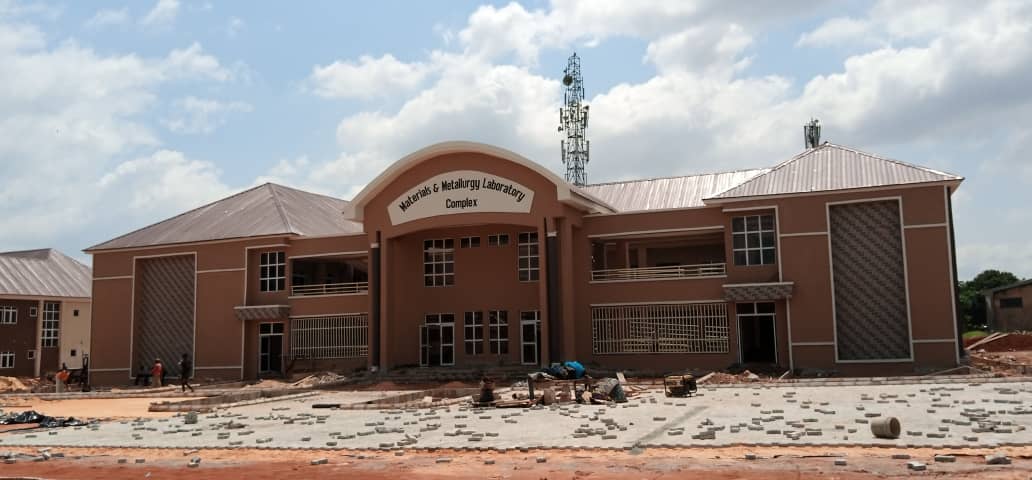
However, this cannot be said of other projects funded by TETFund in the institution. The budget performance report submitted to the senate committee on TETFund shows that some projects are ongoing, but there were no traces of the buildings on campus.
The university budgeted N229 million for the construction and furnishing of the Centre for Educational Technology building which was awarded to Spectrum Engineering Limited an Abuja-based company. The consultancy service was pegged at N25 million. According to the budget performance report, N91 million has been paid to commence the construction, but the site could not be located at the Ugbowo campus. Students and lecturers could not pinpoint the exact location when the reporter made inquiry.
Checks showed that Spectrum Engineering Limited was incorporated on May 19, 2010, to engage in the business of data captured enrollment of citizenry and verification, printing of ID and I.T related to computer services, which is no way related to construction.
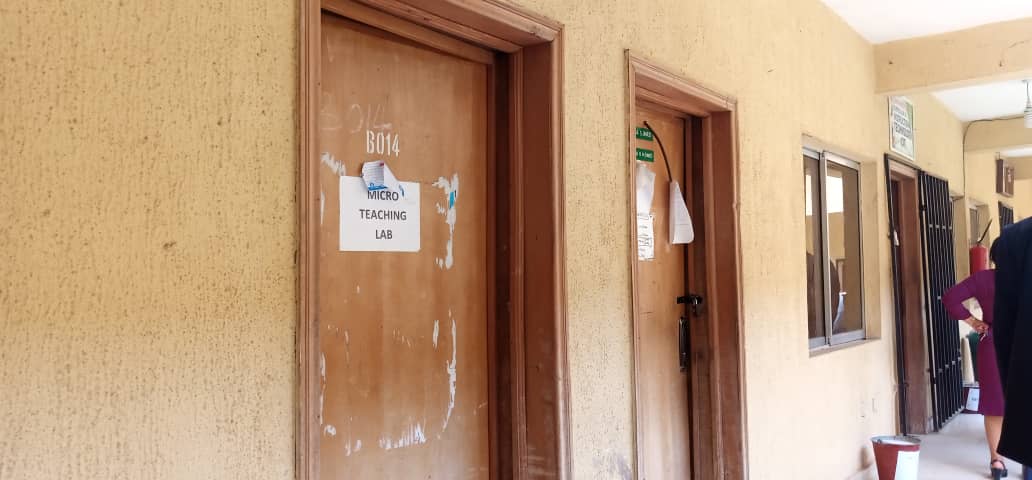
Under the ongoing projects is the construction and furnishing a micro-teaching laboratory awarded at the cost of N215 million to Konstrad Nigeria Limited, a firm based in Borno state, while N24 million was slated for architectural consultancy services. For this new project, N91 million has been spent, but the only known micro-teaching lab is in one of the small rooms in the old faculty of education building.
‘IT IS HUGE SUM OF MONEY’
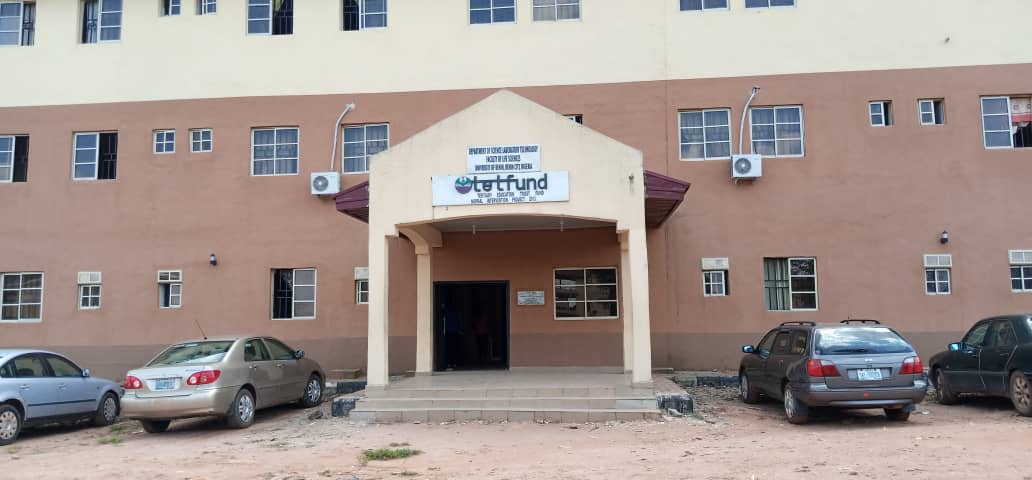
Also, the contract for the construction and furnishing of museum and biodiversity building seems to be another questionable deal. Out of the N189 million contract sum awarded to Stargro Nigeria Limited, another Abuja-based firm, N75 million has been paid for take-off, and another N16 million for architectural consultancy. However, there was no indication of a new museum in the university, aside the old A.B.M Egborge museum.
Incorporated on January 25, 2008, Stargro Nigeria Limited was registered in Borno state and established to engage in general trading.
In 2015, Faraday Orumwense, former vice-chancellor of the institution, confirmed accessing the funds for the projects.
“It is huge sum of money, the amount is quite big, my thanks to the Federal Government for providing the needed funds for the project,” Orumwense said.
“They include Faculty of Education 500 capacity lecture theatre and two number 100 capacity lecture halls.”
When TheCable visited the office of Michael Osasuyi, the university’s spokesman, for an interview, he was not available. However, in response to email sent to him, he said the buildings identified to be missing were at Ugbowo campus.
When asked for evidence of the buildings, he directed this reporter to Timi Ikhiesemoje, director of physical planning, who neither picked calls nor responded to text messages.
SEVEN YEARS AFTER, UNICAL’S FACULTY OF LAW BUILDING ‘UNDER INCUBATION’
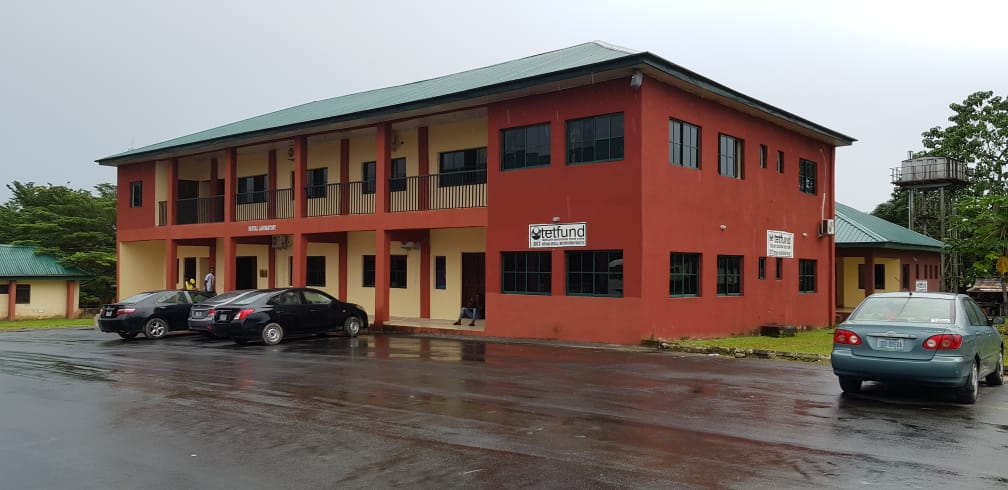
In 2012, the contract for the construction of the faculty of law at the University of Calabar (UNICAL) was conceived. The project was awarded at the cost of N349 million. The company was incorporated on March 31, 2008, to carry out the business of general contractors importers and exporters, manufacturers’ representative. According to the budget implementation report sent to the senate by the institution, the building was designed to provide admin space, offices and lecture halls.
On a visit to the site, there was no work in progress as the uncompleted building was deserted. Students of the faculty confirmed that nothing has been done on the building for about two years. The institution blamed this on the late release of funds.
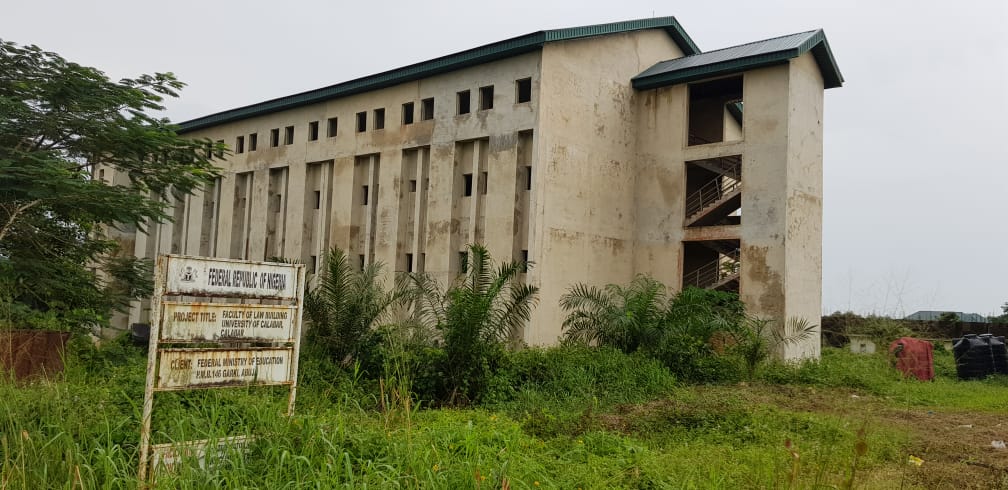
Messages and calls made by TheCable to Effiong Eyo, UNICAL’s public relations officer, on the state of the project were not responded to. However, the campus is dotted with new buildings as parts of TETFund intervention projects. The dentistry department occupies one of the buildings, while some consist of the education block and the mass communication department annex building. Despite the multi-billion naira spent by the intervention agency, the universities are still battling with infrastructural deficit.
This investigation was supported by the John D. and Catherine T. MacArthur Foundation and the International Centre for Investigative Reporting (ICIR).
Add a comment




